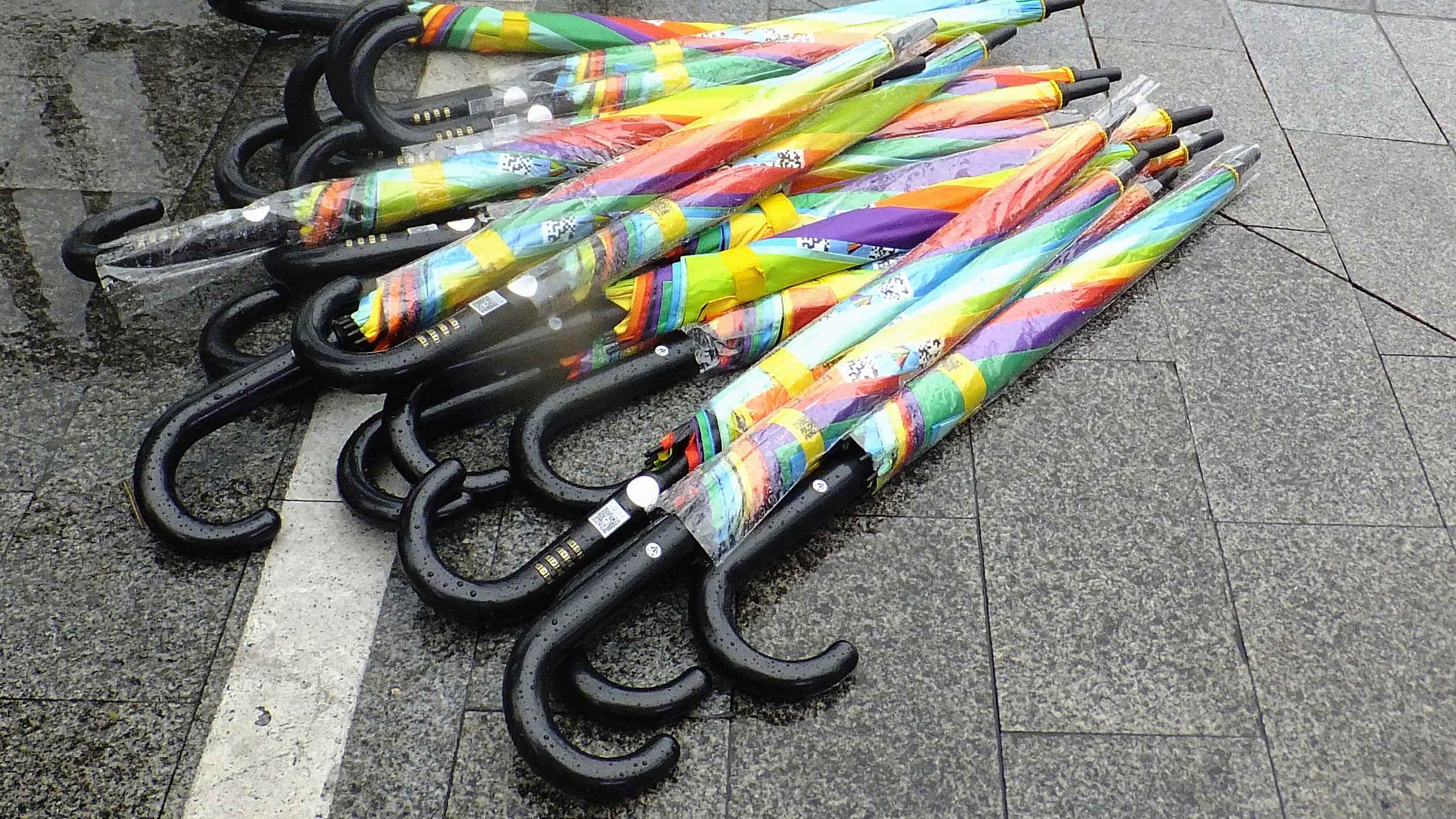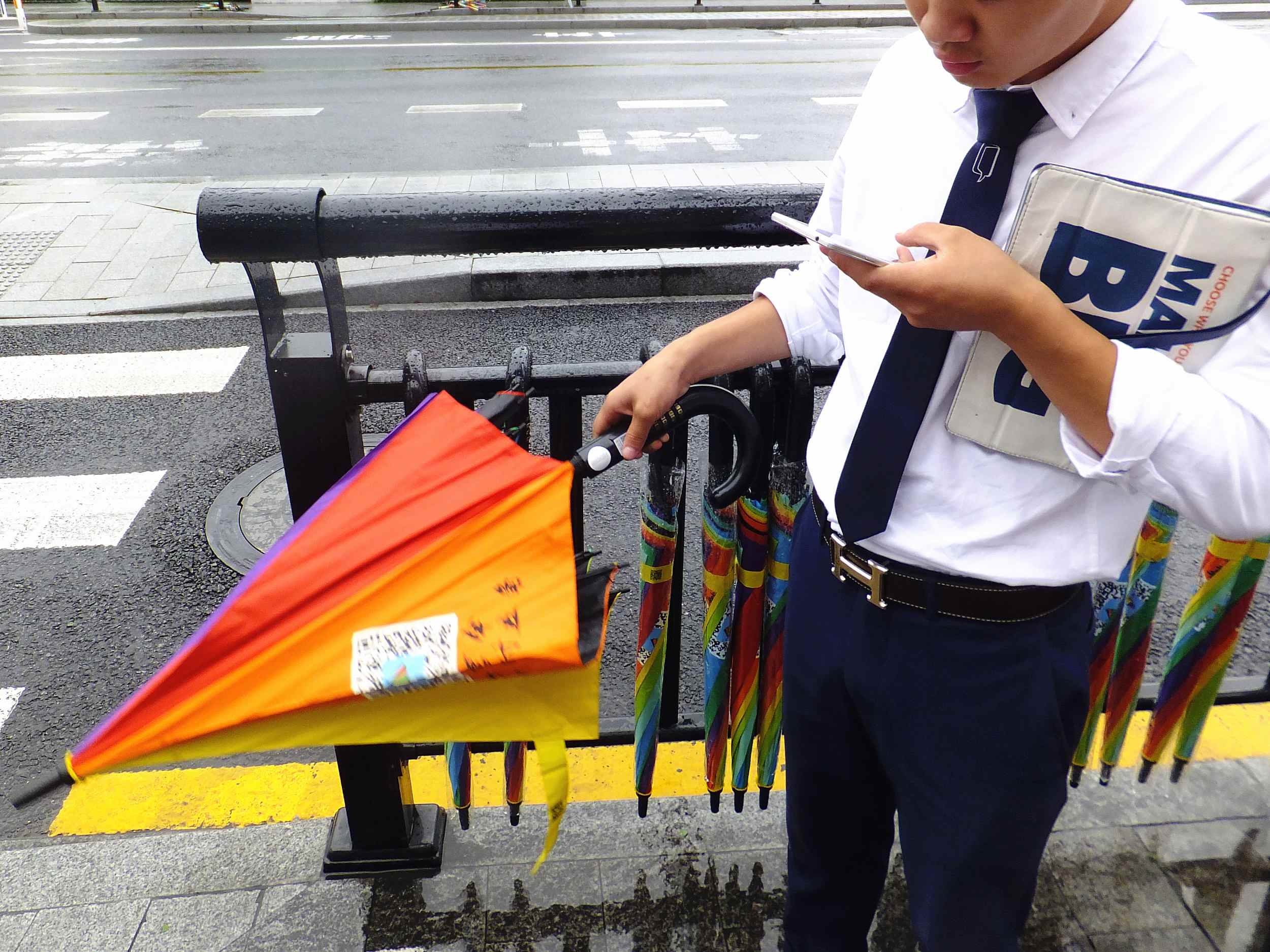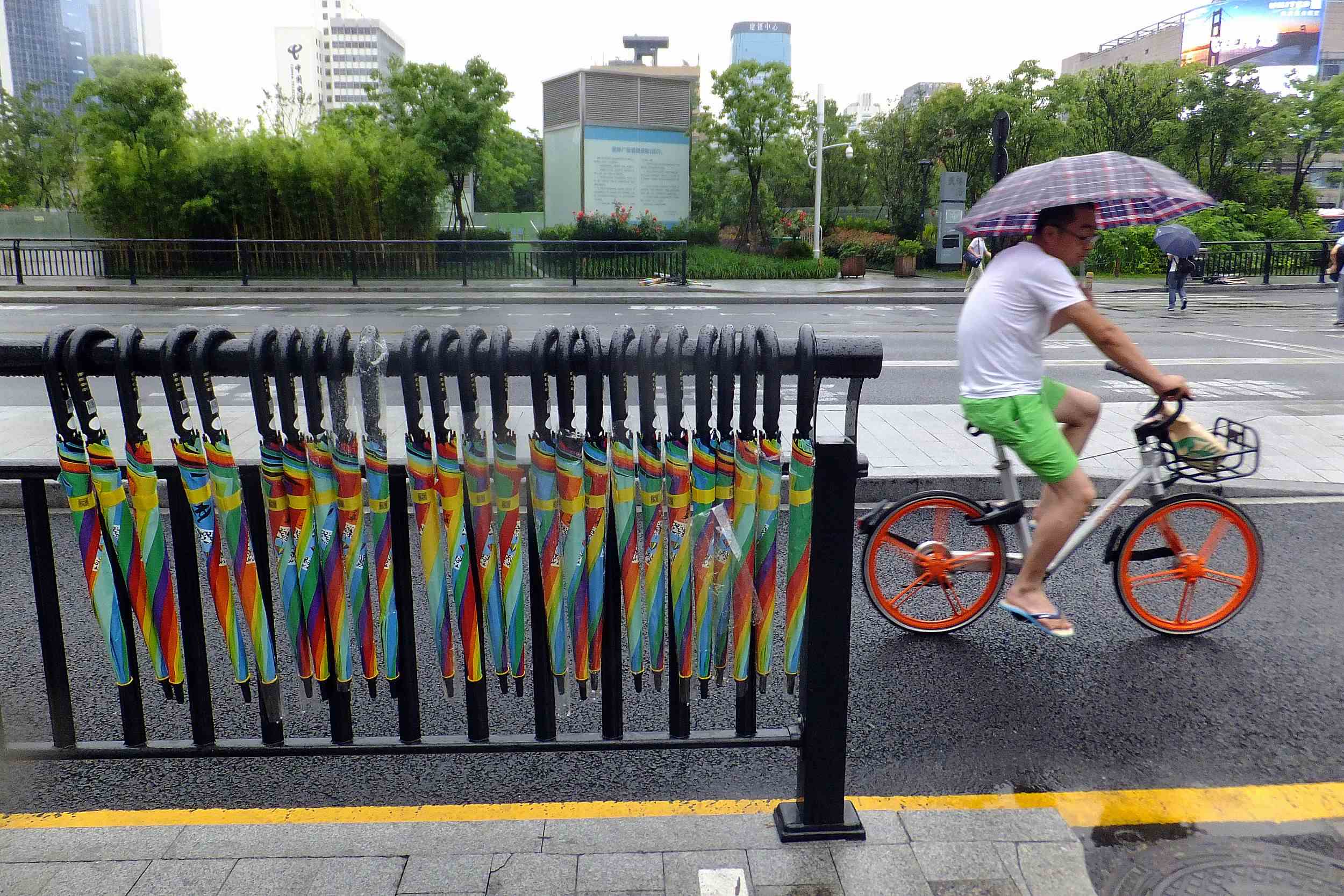
China
20:32, 14-Jul-2017
Losing 300,000 shared umbrellas is not raining on startup’s parade

The founder of a startup that lost almost all of the 300,000 umbrellas it placed on the streets of China for registered users to rent then hang back has said they wanted the customers to “take the umbrellas back home” with them.
Zhao Shuiping’s statement adds another layer of complexity to a baffling situation that has seen commodities accessible to the public being stolen, damaged or vandalized despite sharing-based businesses taking the country by storm.

A citizen tries out a shareable umbrella on street. /VCG Photo
A citizen tries out a shareable umbrella on street. /VCG Photo
“Sharing E Umbrella” allows residents in 11 cities across China to stay dry during the wet months of summer by renting one of its code-locked umbrellas that are hung on sidewalk railings. Users need to download the company’s application on their smartphone, register and pay a deposit worth 19 yuan (2.8 US dollars) before being able to unlock an umbrella.
The concept was meant to be simple: one would rent the dockless umbrellas at a fee of 0.5 yuan (7 cents) when raining, then leave it behind anywhere for others to use.
However, things turned gloomy when the majority of the devices were nowhere to be found.
The idea introduced by the company is modelled after businesses in the bike-sharing industry, which has gained momentum despite its nascence and the many speed bumps along the way. Shared dockless bikes were also reported to have gone missing and damaged beyond use – a predicament that forced one startup to pull out of the market.
Other bike-sharing companies have attempted to tackle the negative behavior by fitting their bicycles with GPS devices, introducing smart locks and rolling out a new credit-rating system which deducts points for users who have misused the two-wheeled vehicles while giving credit to conscientious ones.
But it seems that shareable umbrellas are facing a more somber situation. Continued profits cannot be guaranteed for a business that depends on rain, and for those who live in rainy areas, buying an umbrella, rather than randomly picking one from the street, seems like an obvious choice.
Some also argue that the concept of dockless umbrellas also means that not having established spots where the items could be secured would encourage a person to take the rented umbrella back home for future use, rather than throwing it on the curbside.

Shareable umbrellas on the street. /VCG Photo
Shareable umbrellas on the street. /VCG Photo
Despite the sticky situation, Zhao said the company plans to deploy another 30 million umbrellas to the streets of China by the end of the year, with the founder expressing positive – yet eyebrow-raising – views by claiming that this is “what we want, we want our users to take them back home”.
But while questions about the finances of the Shenzhen-based company have been rife following the announcement of the mass disappearance of the umbrellas, some expressed belief that the pure optimism of the founder during hard times is but a façade as the company arguably already recouped the investment it has made thanks to the deposits and fees already forked out by the users.
Each umbrella costs around 60 yuan (9 US dollars) according to the umbrella producer, which said that as long as a person remembers the password to unlock the umbrella, all later uses of one umbrella would be free of charge. Taking an umbrella back home turns its status from “shareable to exclusive”.
But some users noted that the cost of an umbrella could be less than 10 yuan (1.5 US dollars), and so the business has won back its expenses when users paid the 19-yuan deposit and took the umbrella home.
Skeptics have said that the penchant to take ownership of items that are meant to be shareable could soon spell the demise of the booming industry.

SITEMAP
Copyright © 2018 CGTN. Beijing ICP prepared NO.16065310-3
Copyright © 2018 CGTN. Beijing ICP prepared NO.16065310-3